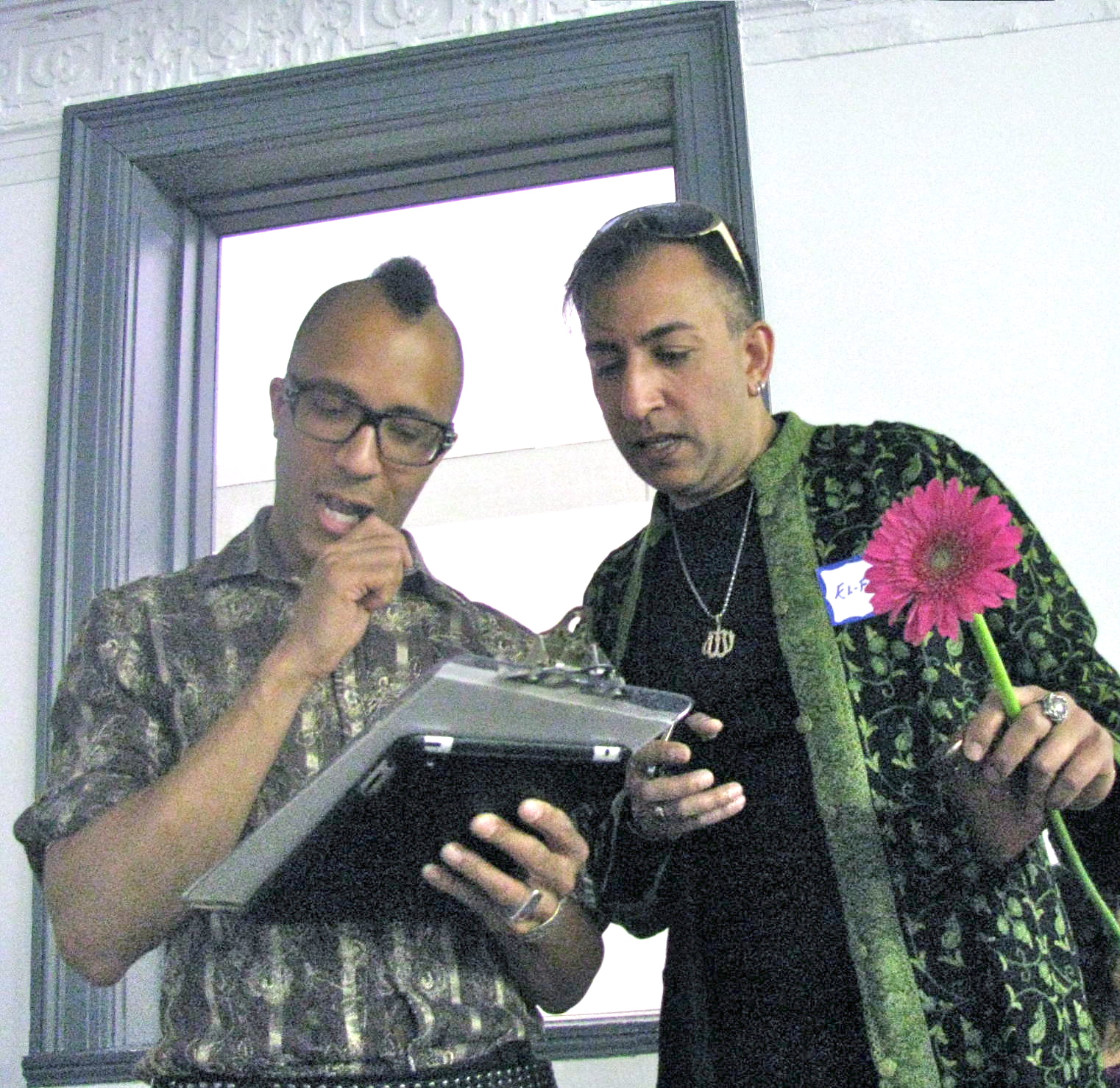When theatre director and spoken word artist Rhoma Spencer was growing up in Trinidad, she looked forward to Ramadan just as much as the Muslim children in her neighbourhood.
“In Trinidad, Eid al Fitr, the celebration at the end of the fasting month, is a public holiday. We always looked forward to Eid simply because it was the feast when our Muslim neighbours shared their special meat dishes with us. And we didn’t have meat very often. So we all loved it!”
On moving to Toronto fourteen years ago, Spencer says, she really felt the absence of Ramadan, Eid, and other important dates from the calendar of Canadian public holidays. And it wasn’t just because she missed the food at Eid.
Spencer had written Maladey, a rapso — a traditional combination of spoken word and calypso — inspired by the ten days of Muharram, a traditional Islamic mourning ritual first introduced to the West Indies in the nineteenth century by indentured Shia labourers from Lucknow — and which is now known as the festival of Hosay, an inclusive public celebration, in Trinidad and Tobago.
At first, few people outside the Carribbean community in Toronto could appreciate the multifaceted political and cultural histories layered into Spencer’s work.
“Not having Muslim friends around, I felt like I was actually missing something that was a part of my life.”
When Spencer met lawyer and LGBTQ activist El-Farouk Khaki and his partner, musician and activist Troy Jackson, she says, they were very supportive of her work. Two years ago, when Troy and El-Farouk first invited Rhoma to come perform at the Annual Peace Iftar, a community event founded by El-Farouk in 2003, the playwright was very moved.
“Through the Peace Iftar, I was able to reconnect to a part of my country’s culture. It was my own little way of celebrating Eid again.”
Speaking about the tenth anniversary of the Peace Iftar to take place this Saturday, July 27, El-Farouk Khaki said that including singers, poets and spoken word artists in the program affirms its place in the Toronto interfaith, arts, LGBTQ, Muslim and wider communities as a “bridge-builder,” allowing for a shared connection between Muslims and non-Muslims by breaking the fast together.
“You don’t need to be Muslim to embrace Muslim culture,” he affirms, pointing out that the sponsors of the Peace Iftar include a range of Toronto’s community and advocacy groups.
“And in fact Muslim culture is sort of effusive and embracing. We continue to transform Muslim devotional practice. The South Asian Muslim ghazals are a particular manifestation, the ilahis [Turkish Sufi songs] are another manifestation. We know that for instance jazz and blues have been heavily influenced by the experience of African slaves in America many of whom were Muslim. So for us, it’s that transformation of Muslim culture into the Indigenous narrative, whatever that local narrative is.”
Growing up in the Cree nation, Nicole Tanguay didn’t know much about Ramadan. The musician, poet and Indigenous women’s rights advocate has now been attending the Peace Iftar for the past four years. And for the third year in a row, Tanguay, joined by Troy Jackson, will conduct a First Nations smudge ceremony and prayer to officially open the event, expected to draw approximately 150 people, this Saturday.
“When El-Farouk first asked me to do the opening, we talked together about how there’s an interconnection between how we view the world. I found it interesting that we both hold off from food and drink for certain times of the year — we First Nations people do a four-day fast, some of us once a season; others may do it twice a year.”
Asked about how people respond to the smudge ceremony becoming an established part of a Ramadan celebration in Toronto, Tanguay is appreciative.
“People are quite fascinated by it — it opens them up to knowing more about Indigenous culture. When we do a smudge with a group of people it brings us together with one mind and one heart. We honour the Creator for this life and its abundance, for animals and plants, and even for the hardships we have — these can be gifts too, right? They help us grow.”
Khaki adds, “To me, the smudge ceremony is actually the cleansing of the smoke — the same kind of spiritual ritual of Muslim wudu — a symbolic stop from the mundane to create space for the sacred.”
Azalea Ray, a trained singer and music teacher in the Indian classical tradition, will perform the Islamic call to prayer for the Peace Iftar. Ray says, of growing up with observant Bengali Hindu parents, “I had no clue what Islam was.” Yet she still remembers the sense of wonder and awe she felt on first hearing the call to prayer in Arabic as a four-year-old child.
“I felt so curious. Traditionally it is only men who recite the call to prayer in Muslim society. So I wondered, why does that incredibly haunting, resonant melody sound so much like a woman’s voice? Can I enter that sound?”
Ray discovered Pakistani female folk and qawwali singers Farida Khanum and Abida Parveen after a traumatic, transformative life experience in which she had lost the upper octave of her vocal range and was compelled to quit singing for five years. This led her to the private study of Urdu and Sufi poetry, and to the renaissance of her new, strong, resonant voice.
Ray anticipates her role of muezzin at the Tenth Anniversary Peace Iftar with joy and trepidation.
“I didn’t think I could connect to the ritual of Ramzaan. And yet it has become this essential time of repentance, remembrance, to be shared with loved ones. It reinforces the core of spirituality for me: love, ishq, harmony.”
Rahat Kurd is a Vancouver-based writer.
Photo: Farhat Rehman



